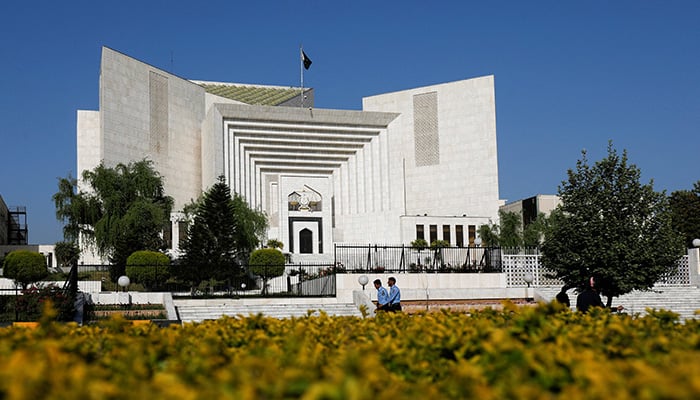SC recommends AI guidelines for judiciary in landmark verdict
AI must aid, not replace, human judicial decision-making, says Supreme Court
April 11, 2025

- Justice Mansoor issues 18-page detailed verdict.
- AI useful in research and drafting support only.
- Law commission urged to frame clear guidelines.
ISLAMABAD: The Supreme Court of Pakistan has issued a landmark decision on the use of Artificial Intelligence (AI) in the country’s judicial system, recommending the development of formal guidelines to regulate its application.
The verdict, spanning 18 pages and authored by Justice Syed Mansoor Ali Shah, underscores the role of AI as a supportive tool rather than a substitute for human judges.
The apex court observed that while AI tools such as ChatGPT and DeepSeek can significantly enhance judicial capacity, they cannot replace human reasoning, discretion, and empathy, which are central to justice delivery.
The judgment calls upon the National Judicial (Policy Making) Committee and the Law and Justice Commission of Pakistan to jointly prepare comprehensive guidelines outlining permissible uses of AI in courts.
"These [guidelines] must delineate clear boundaries, ensuring that AI is used only as a facilitative tool and never in a manner that compromises human judicial autonomy, constitutional fidelity, or public trust in the justice system." the verdict read.
The court noted that judges globally have acknowledged using AI for assistance in legal research and drafting. It stated that AI can support legal research, generate drafts, and improve language precision, but must not be allowed to undermine human autonomy in judicial decisions.
Citing international examples, the Supreme Court pointed out that judges in Colombia, the US, and Pakistan have already experimented with tools like ChatGPT for drafting decisions, though under strict human oversight.
Pakistan’s own Federal Judicial Academy has introduced “Judge-GPT” to assist around 1,500 district judges with case research and drafting under a regulated framework.
The judgment warns against “automation bias” and AI hallucinations —where AI generates fabricated or incorrect information — and stressed that such tools must never be viewed as conclusive or infallible.
Judges must always verify AI outputs, ensuring that all decisions remain transparent, explainable, and contestable.
“A courtroom is not a site for algorithmic governance but a space for reasoned, principled deliberation,” the verdict reads, adding that delegating core adjudicative functions to AI would amount to misconduct and violate due process.
The court concluded by affirming that AI can help reduce delays and improve administrative efficiency, such as in case allocation, but reiterated that core judicial responsibilities must remain exclusively with human judges. It recommended that any framework developed must preserve judicial independence, constitutional fidelity, and public trust.











